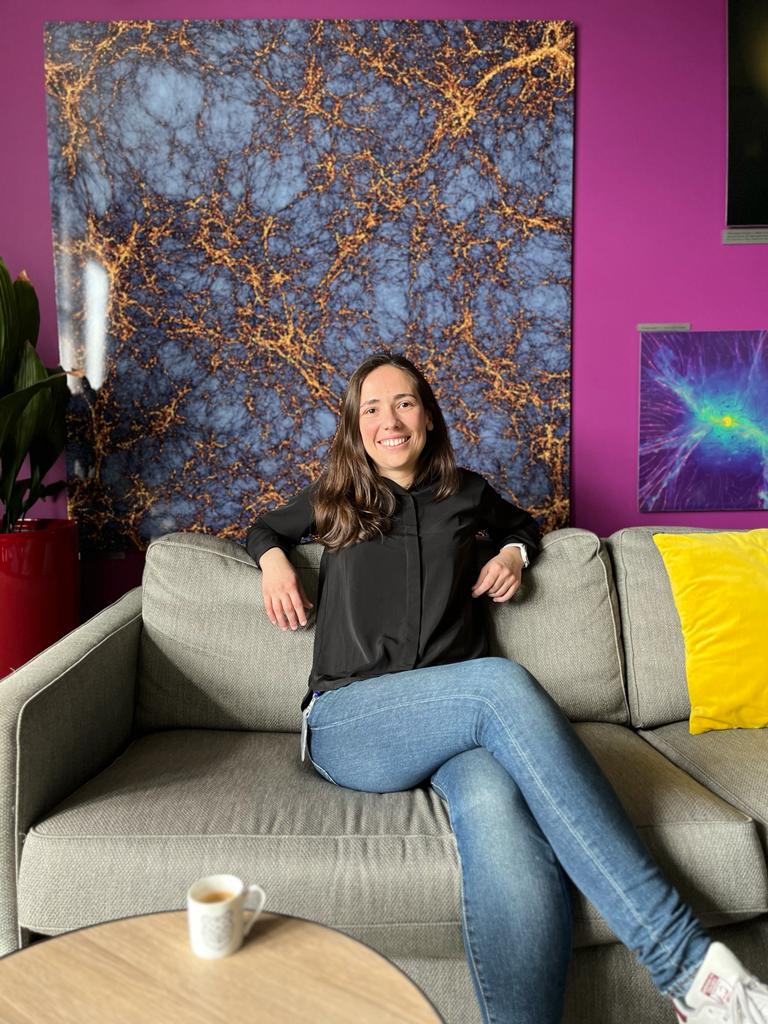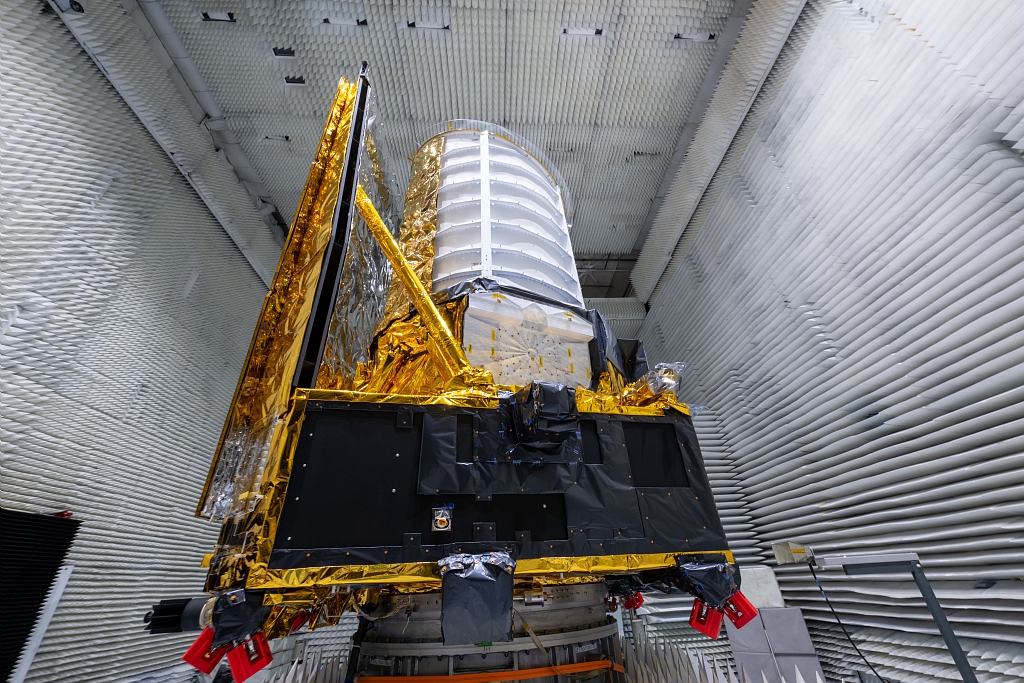Meet a Space Scientist: Francesca Lepori
This month we have interviewed Francesca Lepori, cosmologist at the Center for Theoretical Astrophysics and Cosmology at the University of Zurich. Among different projects, Francesca also works on Euclid, an ESA space mission which will take off from Cape Canaveral in July 2023. Euclid will help researchers to solve the biggest mysteries of modern cosmology: the nature of dark matter and dark energy!

What is your field of expertise?
I am a cosmologist and my work focuses on the large-scale structure of the Universe, the distribution of galaxies throughout the cosmos. We know from observations that galaxies are not evenly spread out, but instead are clumped together in groups and clusters, with vast voids of (almost) empty space in between. These structures form a kind of cosmic web, the largest known structure in the Universe, spanning billions of light-years across. Understanding the large-scale structure of the Universe can help us learn more about the history and evolution of the Universe, as well as the fundamental laws that drive the growth and movement of galaxies.

What are the current open questions which Euclid will help you answer?
Euclid is set to shed light on the biggest mysteries of modern cosmology: the nature of dark matter and dark energy. Our current understanding of the universe is based on the theory of General Relativity to describe gravitational phenomena, and relies on the existence of these two elusive ingredients, which we cannot directly observe. Dark matter governs the growth of cosmic structures, while dark energy is believed to be responsible for the accelerated expansion of the Universe. Euclid will measure the expansion history of the Universe over the past 10 billion years, characterize the properties of the dark sector, and test General Relativity on the largest scales.

Since how long are you involved in the Euclid mission, and what is your role?
I have been a member of the Euclid Consortium since late 2019. As part of the Theory Working Group, I lead a work package on the ‘relativistic effects` that arise from the fact that light emitted by a galaxy travels through an inhomogeneous Universe to reach our detector. One of our team's main areas of interest is the impact of gravitational lensing on galaxy clustering observations, also known as ‘lensing magnification`. Currently, I am coordinating a project to incorporate this effect into the data analysis pipeline developed for Euclid.
What is the role of UZH researchers in this mission?
Scientists at UZH contribute mainly to the activities of the Simulations and Theory working groups in Euclid. A major contribution has been the Flagship simulation, a cutting-edge N-body simulation comprising 4.1 trillion particles that move and cluster according to the laws of gravity. This groundbreaking simulation, developed by Prof. Joachim Stadel and Dr. Douglas Potter, was produced in Switzerland on the Piz Daint supercomputer, which is hosted by the Swiss National Supercomputing Centre in Lugano. The Flagship simulation forms the basis of the official simulated catalog of galaxies, which is widely used throughout the Euclid collaboration, in preparation for the vast amount of data that will be collected and its complexity.

What would be the greatest discovery which you hope to get with Euclid?
In my view, the most significant discovery we expect to make with Euclid is a variation in the density of dark energy at different stages of the Universe. In the standard cosmological model, dark energy is modeled as a cosmological constant: a fluid with a constant density that does not change over time. While this model is the simplest way to describe a Universe undergoing accelerated expansion, it poses some fundamental questions. Euclid has the potential to distinguish between a cosmological constant and a dynamic form of dark energy, which would have far-reaching implications for our understanding of the mechanism driving cosmic acceleration.